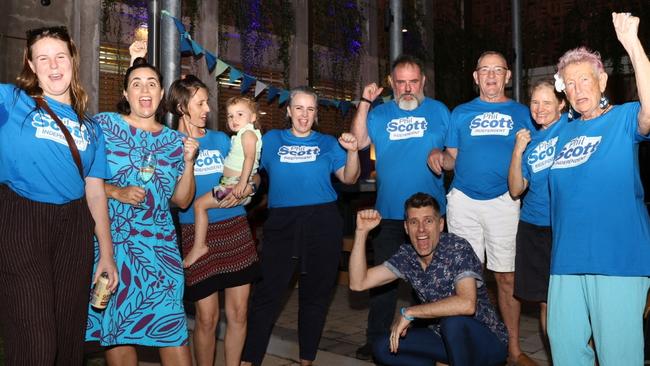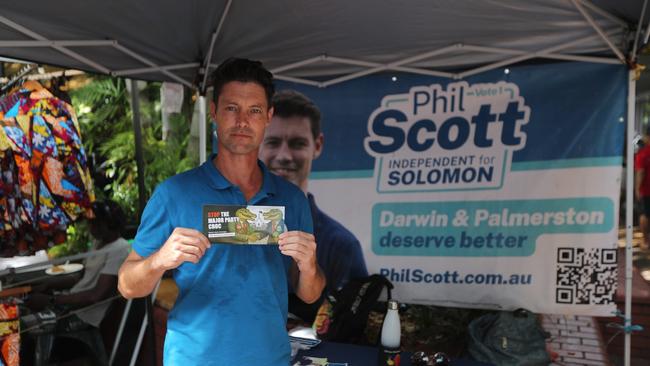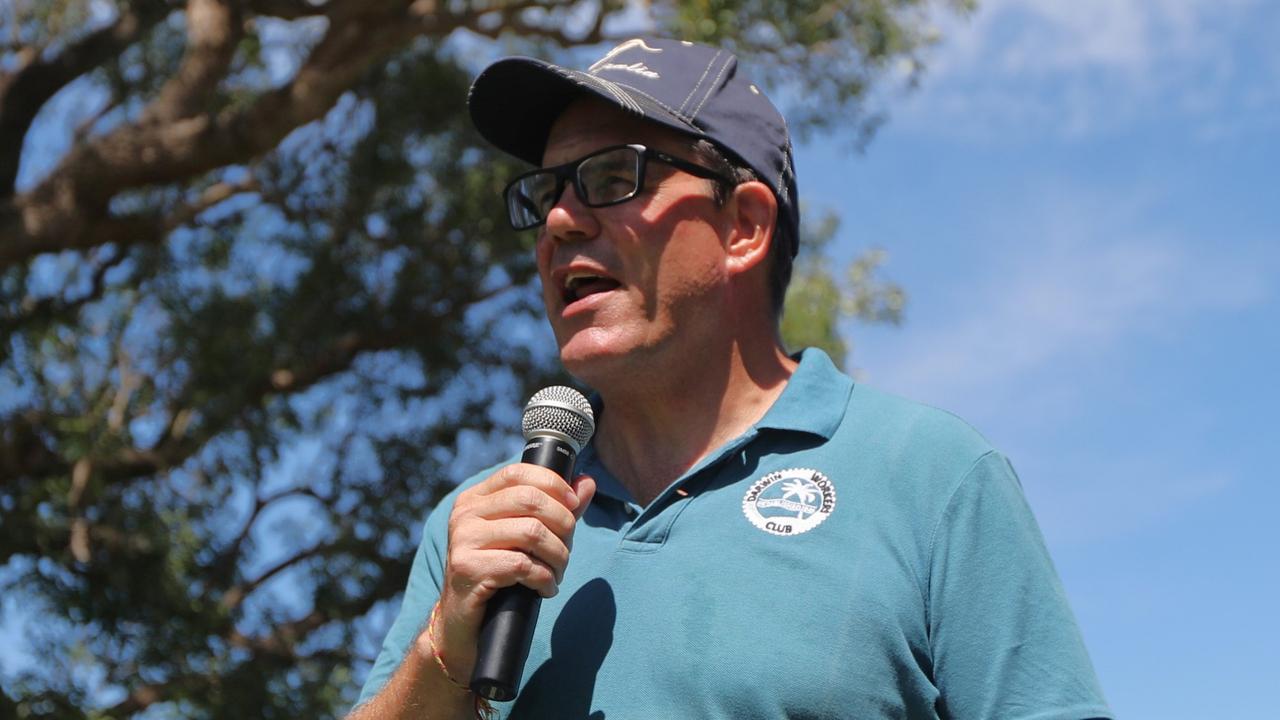Great Scott: Fabulous Phil changes voting stereotype
The cliches of the ‘traditional Darwin voter’ has been put into question after a quarter of Solomon first preferences went to progressive candidates.

News
Don't miss out on the headlines from News. Followed categories will be added to My News.
Self-described “house dad”, Frack Free NT community organiser and former Parramatta council ‘community capacity building manager’ Phil Scott said he was not certain what post-election life would look like for him.
The Teals candidate tallied 13 per cent of first preference ballots in Darwin and Palmerston, bringing the Climate 200 endorsed, anti-fracking protester to third place in Solomon.
Mr Scott did not rule out becoming involved in the upcoming council elections in August, either as an organiser or as a candidate.
“I have been asked, but frankly I’m just too tired to even think about it,” he said with a laugh.
“I’m interested in deep system change and what is possible from that, so whatever is a healthy and responsible place for me to put my energy is probably where I’ll go.”
Mr Scott said his biggest takeaway from the campaign was watching young leaders emerge, which he predicts would drive change in the Territory’s political landscape in coming elections.

Mr Scott’s result has put into question the cliches of the ‘traditional Darwin voter’ after a quarter of Solomon first preferences went to progressive candidates.
With the Greens also securing 10 per cent of first preferences, this meant that 23 per cent of voters endorsed a progressive candidate in Solomon.
Mr Scott said Saturday’s results could be a sign that the idea of who a “Darwin voter” looked like was changing.
“It possibly is, but I am returning to (the question of) what we’re defining the community as,” he said.
“I don’t know if it is useful to define our communities as ‘progressive’ or ‘conservative’, because those shared community values is what is in our collective interest,” he said.
Only eight months ago the CLP’s wave of orange took over all but a handful of Darwin and Palmerston electorates, with a 16 per cent swing towards the conservative party.
The safe Labor seat of Solomon was one of around 17 seats to experience a significant swing towards the Coalition, with Mr Scott attributing the CLP Lisa Bayliss’s 5 per cent swing to local issues, rather than Canberra politics.
Mr Scoot said nationally there was increasing interest in third party and independents due to discontent and scepticism of the major party system.
Less than 24-hours after the polls closed, Mr Scott acknowledged he still spoke as though he was still on the campaign trail.





